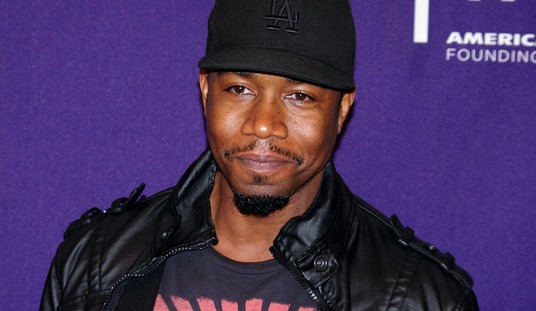One of the sillier effusions of pop political correctness is the attempt to bully the idea of female beauty out of the culture. Ceaseless attacks on Barbie dolls for giving girls unrealistic expectations (though, strange to say, Superman doesn’t do that to boys), or virtuous but likely ineffective campaigns to sell underwear with overweight models, not to mention the endless feminist maundering on the subject — it all seems part of yet another wearisome leftist attempt to change basic reality through thuggery, censorship and noisy protest. Good luck with that.
Listen, I don’t complain that Ryan Gosling stole my part in The Notebook — I could’ve killed in that! I don’t waste a lot of bitterness on the fact that Kobe Bryant took my spot on the Lakers. Some people are born with natural gifts that others don’t have. Some girls are knockouts. Some are not. Why, I wonder, shouldn’t women have to live with the basic unfairness of life same as dudes?
I first noticed that this silliness was infecting show biz while watching the absolutely superb 1995 BBC adaptation of Pride and Prejudice. Man, that was good. But I found it very annoying and distracting to see that the older sister, Jane (played by the quirkily appealing Susannah Harker), was nowhere near as beautiful as Lizzie, played by the then-stunning Jennifer Ehle (still attractive 20 years later and an excellent actress).
Readers of the great Jane Austen novel will know that sister Jane’s beauty and sweetness are an important part of the plot as they contrast with Lizzie’s wit and fire. And the show treated the Jane character as if she were as beautiful as the character in the book. It was confusing and didn’t make sense. I’m told that when questioned about this, a BBC executive replied defensively and pompously that, well, there are other kinds of beauty besides physical beauty, you know. And yes, there are. But Jane’s beauty happens to be physical. Why not play it that way? The answer, of course, is that the Beeb is a leftist organization and thus must kowtow to the whims of bossy feminists who don’t like the idea that female physical beauty has a power and social worth that are both real and non-negotiable.
That sort of bossy feminist attempt to outlaw normal life has reached a kind of apotheosis with the pseudo-hit Girls on HBO, a show no one watches but the elite press adores. I wrote at length here about a bossy attempt to bully a reporter after he questioned why the show’s star Lena Dunham was always getting naked when (the subtext of the question) she’s not that attractive. A bossy barrage of shutuppery was unleashed at the suggestion that some nakedness is better than others. But of course, that doesn’t change the fact that, well, some is.
Compare the bossy Girls bullying to the enjoyable (and sometimes wonderful) show Sherlock, also on the BBC. Dr. Watson (Martin Freeman) got married to Mary Morstan last season and the part was cast with Freeman’s real-life lover Amanda Abbington. Abbington is a perfectly presentable and attractive lady, but it’s hard to imagine an American production that would have allowed one of its central heroes to marry anyone who was not a drop-dead gorgeous model-style stunner. (Indeed the tendency of network TV to put eye-scorching babes in every female role detracts from the realism of some of the shows.)
But I’ve noticed something interesting on Sherlock. The part of Mary is so well written as a lovely, charming, gentle, caring and womanly woman — and Abbingdon does such a good job radiating wifely affection and appeal in the part — that after a while she becomes quite beautiful to at least this viewer’s eye.
Any guy who has ever fallen in love with a not-gorgeous but incredibly feminine, kind and charming woman knows that this is very true to life. It’s amazing how lovely such a woman becomes once you get to know her. Almost kind of magical really. The fact that writers and actors can make that startling phenomenon take place right there on fictional television suggests it may be a function of the male brain. We see a woman like Mary who would make such a gentle, affectionate and helpful companion through life and we can abandon the great beauties to the screen without regret.
So, hey, this gives me a fantastic idea! Maybe bossy feminists should stop trying to bully us into thinking we don’t see what we see and instead of banning words like bossy should actually try to ban BEING bossy and become kind, tender and generous to the men in their lives. Then they would become beautiful and wouldn’t be called bossy so it would actually solve two problems at once!
Good idea, right? But really, no need to thank me.
****
image via Daily Mail









Join the conversation as a VIP Member